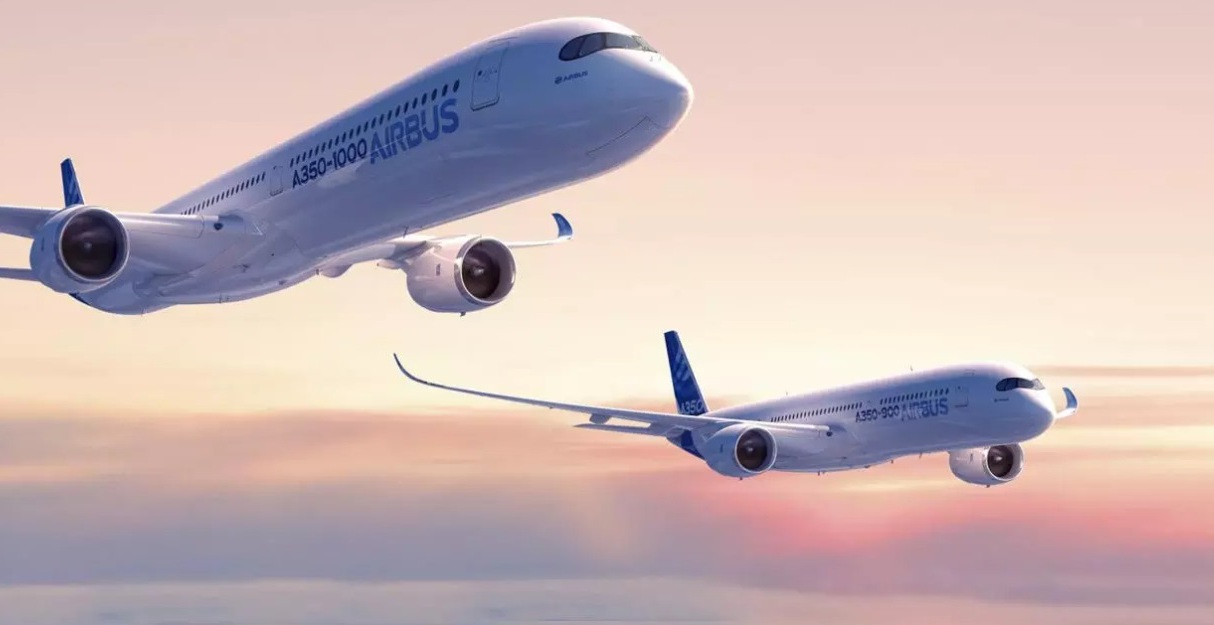After reports earlier in the week suggested Airbus would deliver around 760 aircraft in 2024, the French OEM has now confirmed it in fact delivered 766 aircraft in the year — only four short of its annual target of 770 aircraft. However, the company had set an initial goal of 800 aircraft in 2024, but was lowered in June 2024 as supply chain shortages persisted. The deliveries for 2024 also fell short of 2019’s peak of 863 aircraft deliveries.
“As far as I’m concerned, we reached our target,” said Airbus Commercial Aircraft CEO Christian Scherer in a press conference. “The 770 target was in the range of and to me we’ve achieved that.”
The company delivered 123 aircraft in December 2024, up 11 units from the same month a year prior. In addition, the full year deliveries are up 31 units from 2023's full year deliveries.
Scherer said the company “kept our trajectory” for its deliveries, noting milestones such as the first ever A321XLR delivery in 2024, as well as first A330neo and A350 deliveries to several customers globally.
“Plans have to constantly be adjusted and we are not increasing production as fast as our customers would like and as fast as we would like,” Scherer said during a press conference. “But if you step back, you see that together with our partners in the supply chain at large, we have shown a lot of strength, and I dare say that Airbus has shown leadership and pulled the industry up.”
Deliveries for the month included 92 A320neo family aircraft, 10 A220s, seven A330s, and 14 A350s. The full year's deliveries consisted of 602 A320 family aircraft, 75 A220s, 32 A330s, and 57 A350s. A321neo deliveries were up 14% over 2023, as well as making up 60% of its narrowbody deliveries.
Scherer said Airbus has “reaped the benefits” of its industrial investments, in particular into its A321 industrial capability. “The predominance of the A321 in our orderbook is clearly embedded in our ramp up plans to get us to the rate of 75 single aisle airplanes per month by 2027,” said Scherer in the conference. He maintained in the conference that the target was still within grasp. He added that the company’s assembly lines for the A321 will increase from eight to 10 by 2026 as part of its ramp up plans.
Scherer said: “In 2024, we stepped up our involvement in the supply chain and become much more operational and less transactional in the way we deal with our partners. We’ve addressed different supply chain issues one after another as they develop, and we face them. That’s now paying off.” He added that Airbus has supported the financing of its suppliers when needed.
“We've worked hand in hand with some of our large key tier one suppliers as well, to improve on their delivery situations,” said Scherer. “Engines come to mind, but it's not the only one. All of this has brought visible results, but frankly, wasn't enough.”
Scherer highlighted a couple of times how much the loss of expertise in the industry has impacted the supply chain, stating that it remained a “concern” for the industry’s need of skilled and experienced employees. Airbus, he said, is active in intense training and transfer of knowledge for Airbus as well as its suppliers.
In addition, Scherer said there has been “good progress” with its A220 and A350 parts supplier Spirit AeroSystems’ selling off its Prestwick facility.
“Spirit are still soliciting bids and actually getting bids for their Prestwick facilities,” said Scherer. “Progress is happening from all three major parties involved, which are first and for most Spirit, Boeing, and Airbus. I feel confident that this thing is going to converge and close relatively soon.”
“2024 confirmed sustained demand for new aircraft,” Scherer added. “We won key customer decisions with most important customers and saw phenomenal momentum for our widebody orderbook, complementing our leading position in the single aisle market.”
Net orders in the year totalled 826, including 82 A330s and 142 A350s. As of the year-end, the company’s backlog stands at 8,658 aircraft.
Orders for December totalled 99 aircraft, consisting of five A220-300s from Air Canada, three A320neo jets from Royal Jet, and three A330-900 jets from Air Algerie.
Airbus executives defended the lower A220 (the programme it took over in 2019) orders, stating that there was some market hesitancy around the aircraft with the continued issues surrounding the geared turbofan (GTF) engines.
Interestingly, the company recorded an order for 75 jets on December 30, 2024, from an undisclosed customer. The order consisted of 49 A320neo and 26 A321neo jets. The company also recorded an order for 10 jets from an undisclosed buyer on December 23, 2024, consisting of six A320neos and four A321neos.
Airbus also noted orders for two A220s and one A350-900s from undisclosed buyers.
During the conference, the Airbus team also noted the company wanted to “crack” the US freighter market, promising “more to come” soon.

